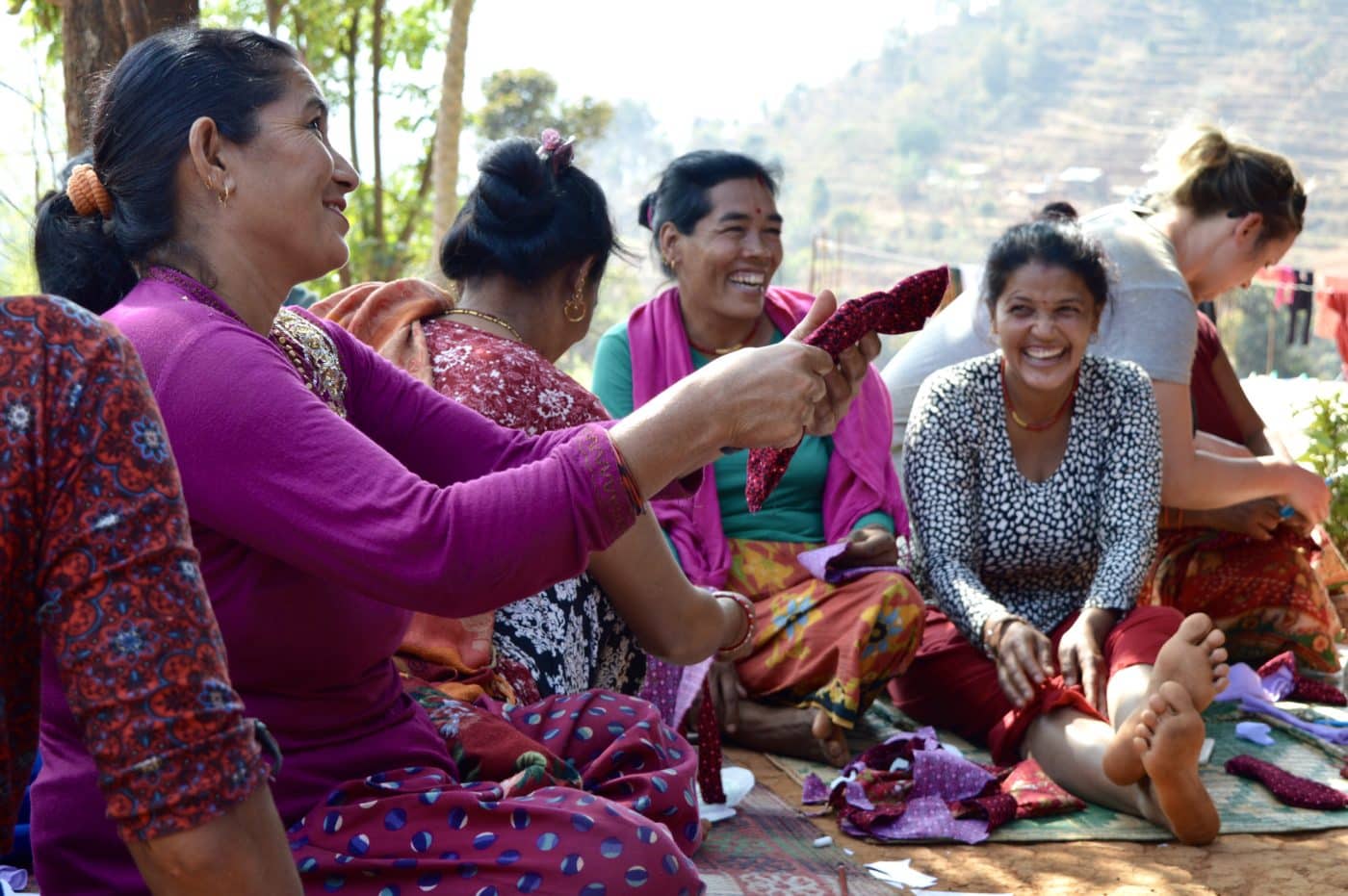Tackling Period Poverty: Making Sustainable Sanitary Pads in Rural Nepal
Raleigh volunteers in Rampur and Benitar have been running menstrual hygiene workshops and showing women how they can knit sanitary pads out of spare clothing. By making pads in this way, community women can wash and reuse them a number of times and save money on sanitary products in the market.
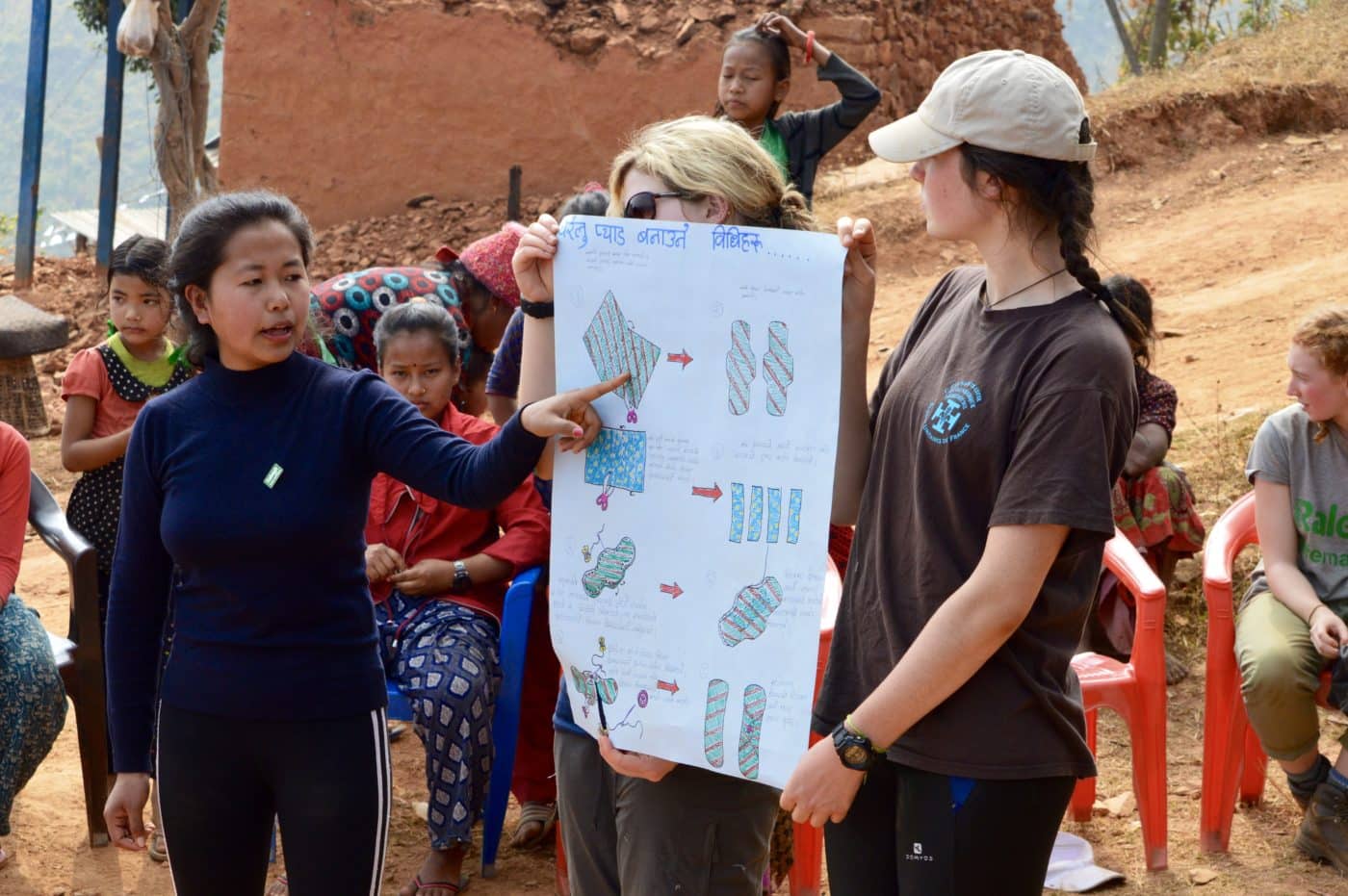
Making a reusable sanitary pad is easy. On a small square of old clothing, cut two pieces of material using a paper pad template. Sew the two pieces of material together and fill it with a disposable piece of cloth for absorption. Include buttons on the wings of the pad to help make the pad secure. Leftover material can always be used to make more pads.
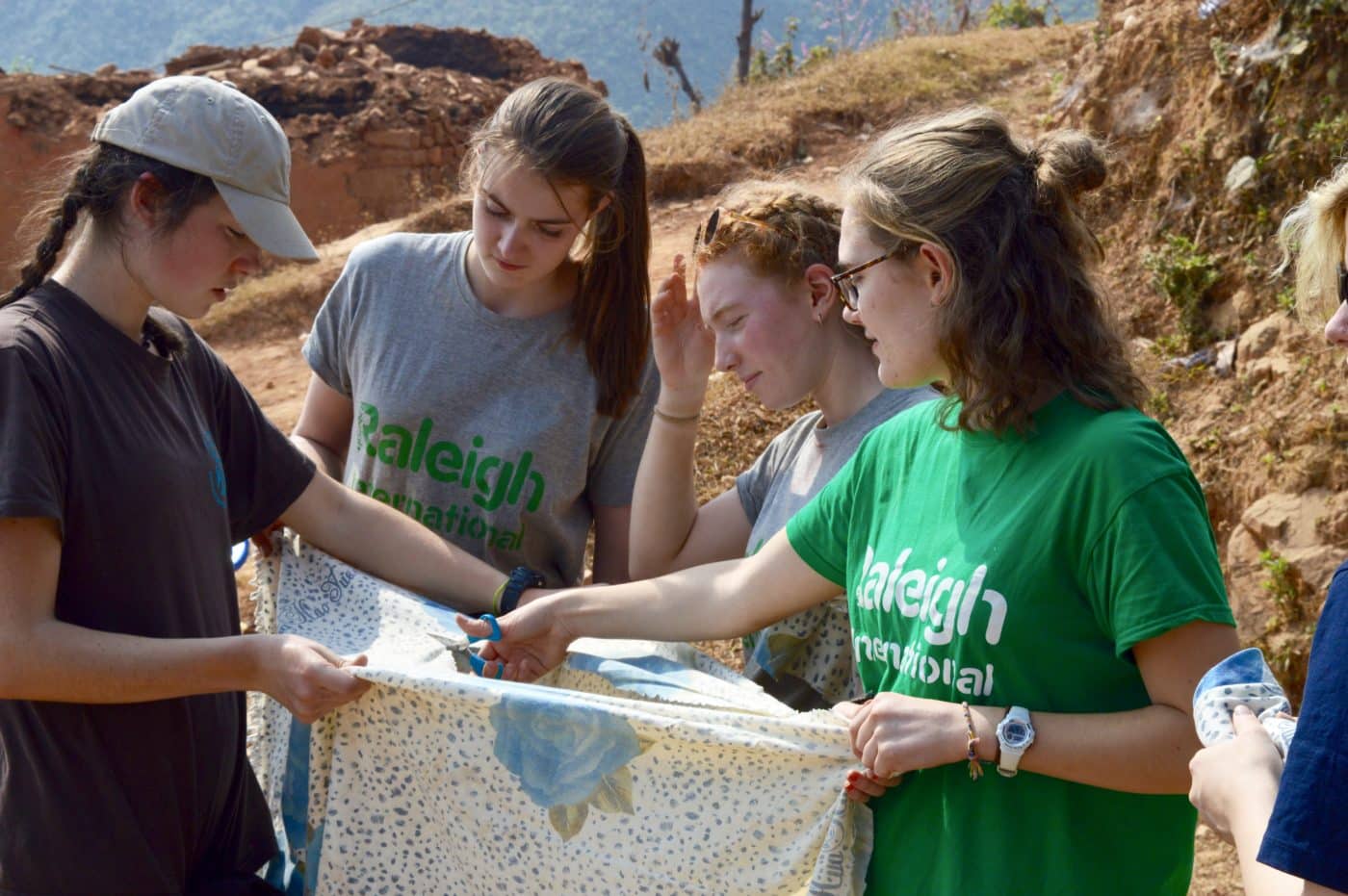
In Benitar, Raleigh volunteers delivered a pad-making workshop for over 15 women. Every woman made their own pad, including Dahn Kumare who said:
“Learning how to make these pads is going to be economically beneficial for me and other women. I can make these pads in my spare time, which will be much easier for me as I don’t have time to go to the market because of household work. Now that I can make these pads, whenever my period occurs during the night I won’t need to panic or go searching for anything else. I can reuse this until I have to make a new one. I have one daughter and two daughters-in-law, and I am glad that they have learnt how to make these so early on in their lives.”
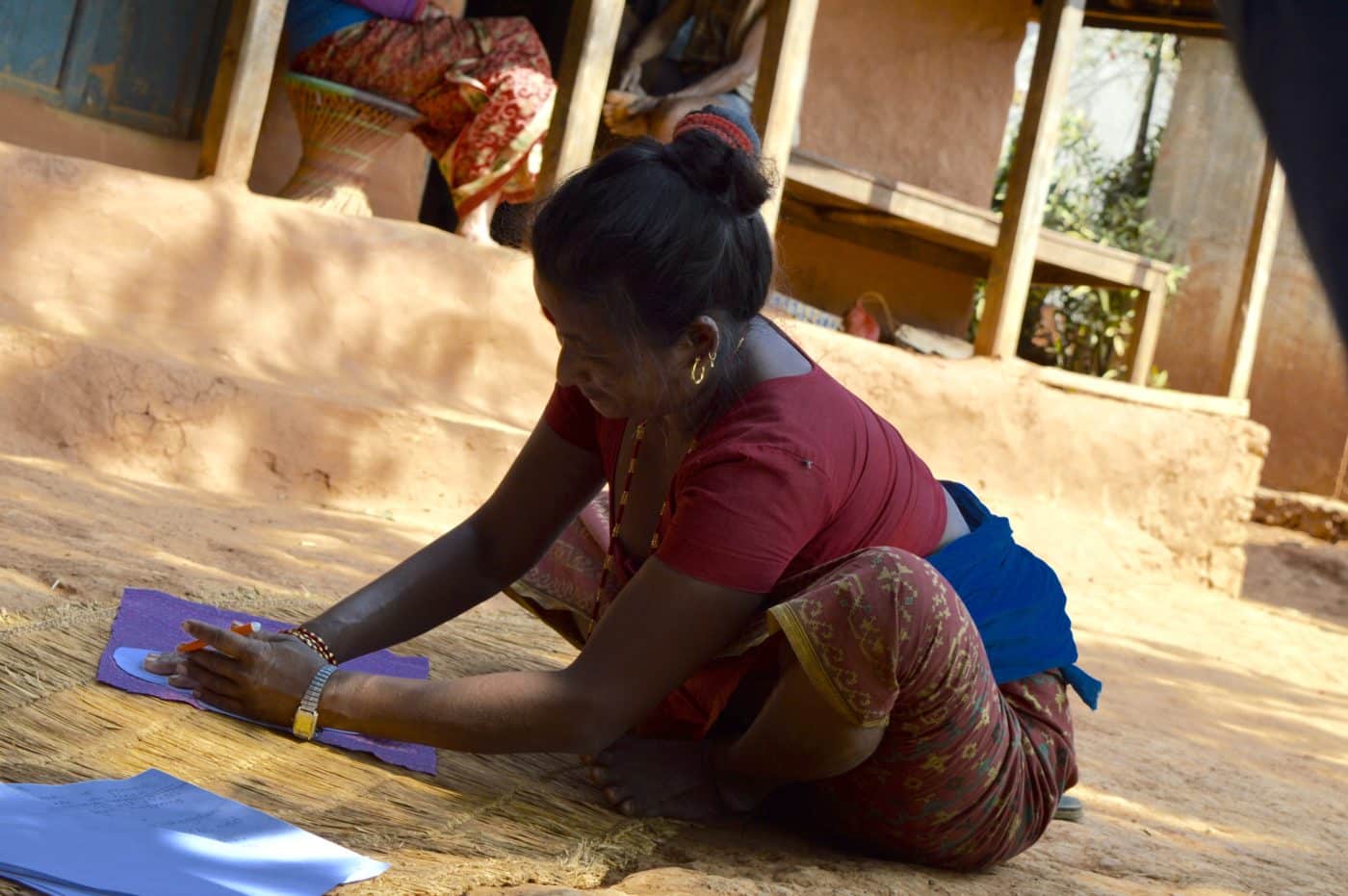
In Rampur over 30 women learnt how to make sanitary pads at the workshop. Sun Maya, a member of the women’s group in Rampur, said:
“For me it was really helpful to learn how to make these pads as it means we don’t have to buy other pads from the market. We can make these by ourselves and can even make use of our old clothes so there won’t be any wastage. We are really happy and are now planning to use these new sanitary pads from now on.”
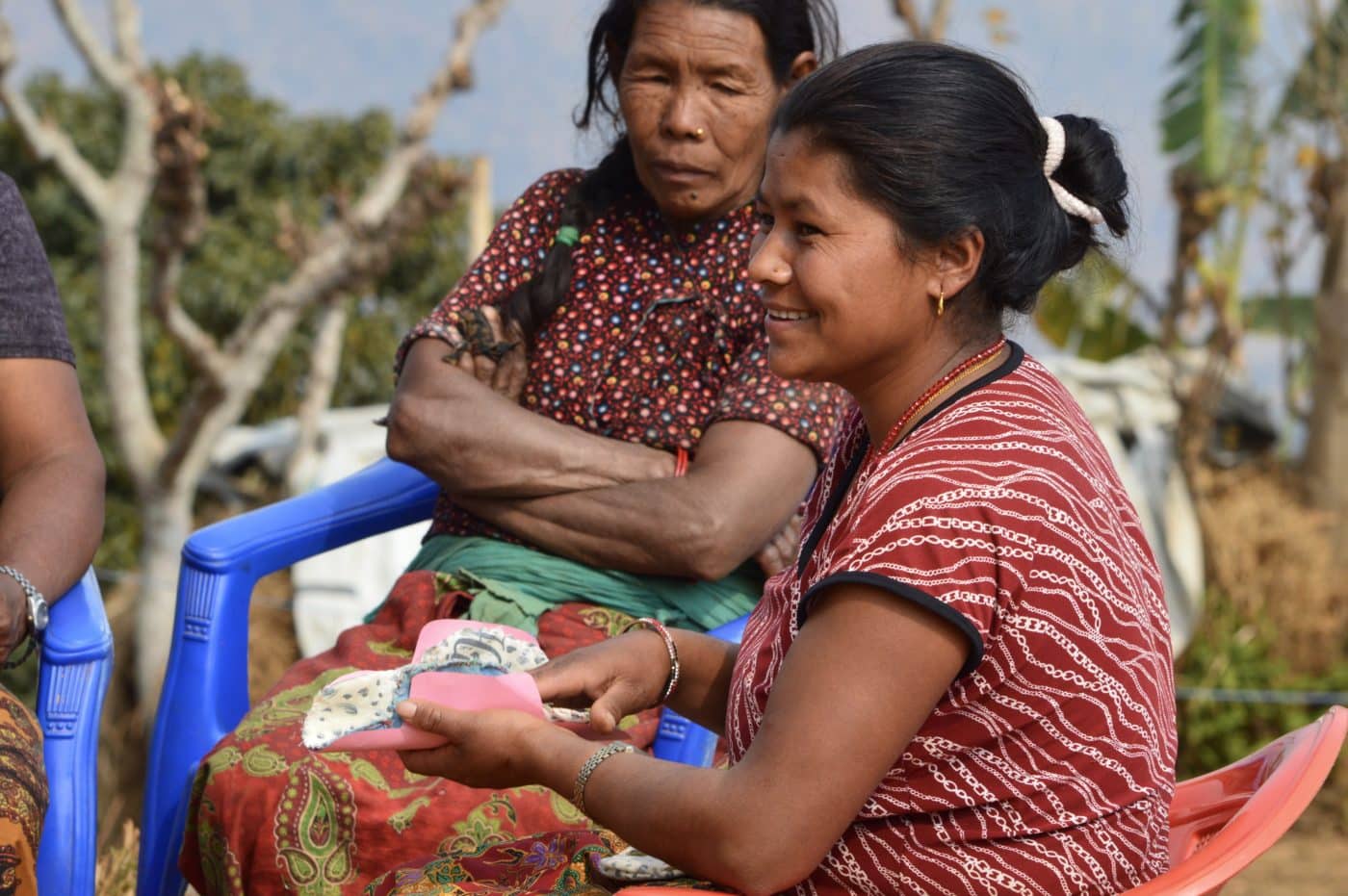
These workshops are helping women in rural communities to learn new skills which will benefit them on a monthly basis. Raleigh Volunteer Manager Sally said:
“We made a really important connection with the community women in Rampur. We didn’t know the attitudes that the women had towards menstruation and we weren’t sure how they would respond to the workshop. But when we showed them how to make these pads, the ladies were really excited. Reusable pads weren’t something that they’d seen before, so it was amazing that they said they would use them again in the future.”
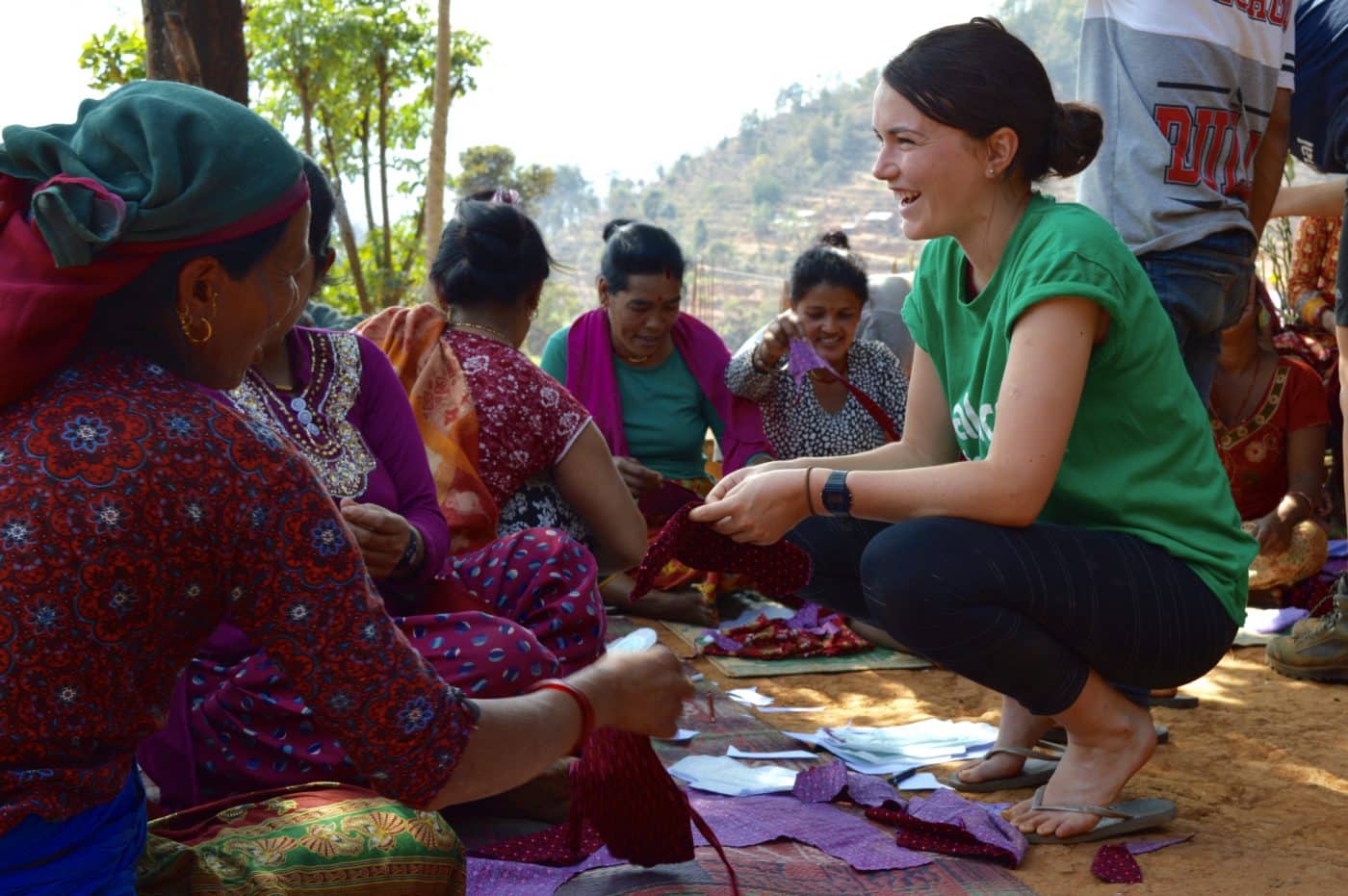
Female volunteers in Benitar took the opportunity at their workshop to learn about the role of women in the community, which challenged stereotypes which are sometimes perpetuated about women in rural Nepal. Raleigh volunteer Molly said:
“I was surprised to find how equal the roles were between men and women. Before I came to Nepal, I assumed men would be the dominant figures in the community, but it doesn’t feel like that here. Women here are at the forefront and have a bigger role than we thought they would.”
Benitar volunteer Lola reflected: “It’s good to meet the women and to learn about their culture. Before I came to Nepal, I’d heard that some women aren’t allowed in the house during their period, so I thought it might be hard for me because I’m a girl. But being here has changed my perception. We saw that everyone in the community respects the women and have respected us as female volunteers. Everyone in the community appreciates the work we are doing on our project.”
Through these workshops Raleigh’s female volunteers have equipped community women with skills that’ll improve their menstrual hygiene, whilst also learning more about what it means to be a female in Nepal. Their project is bringing together women from around the world, empowering each other to have stronger, better lives, and putting an end to period poverty.
Raleigh volunteers, like those in Rampur and Benitar, continue to work alongside women in rural Nepal on projects which support and empower communities. Follow the the progress of our current Expedition on the Raleigh Nepal Facebook and Instagram page.
